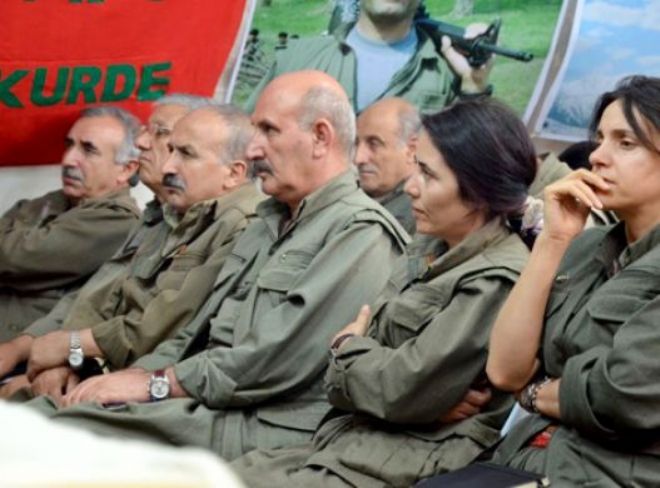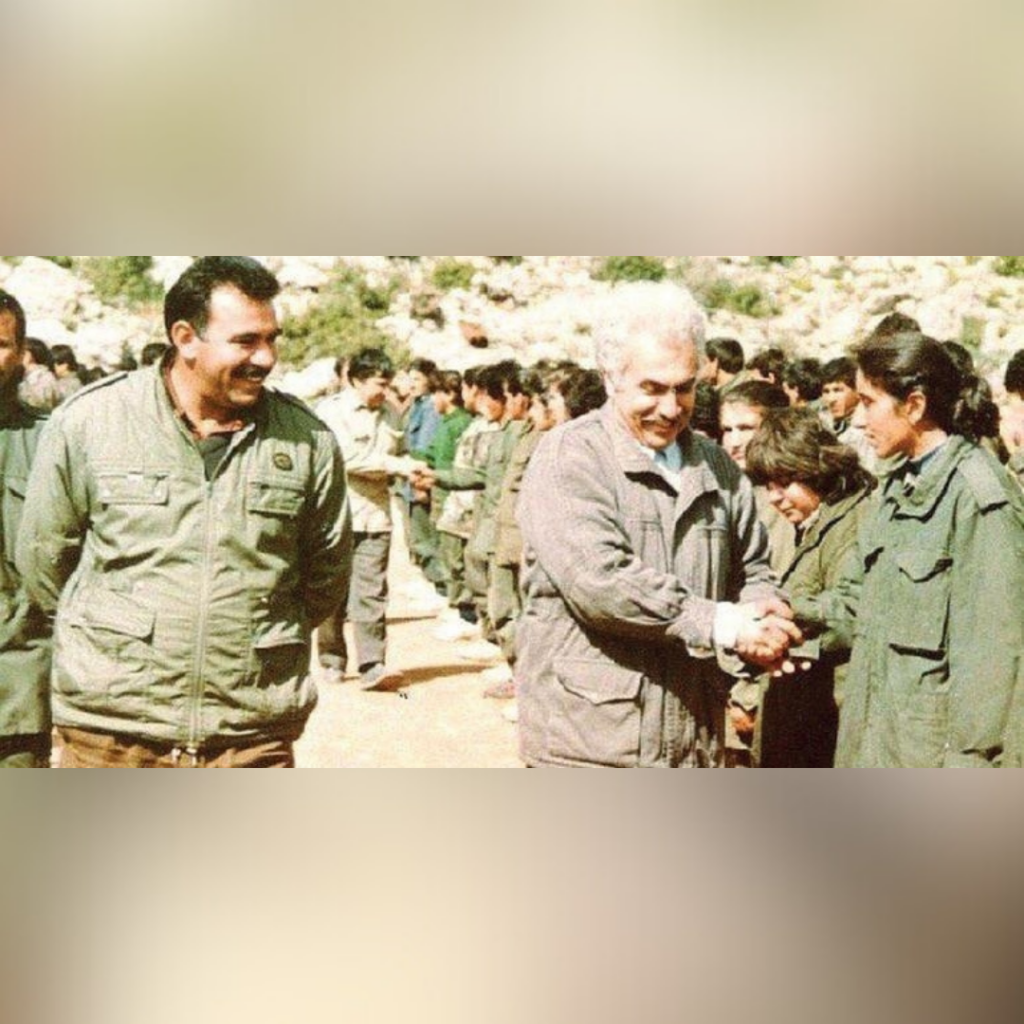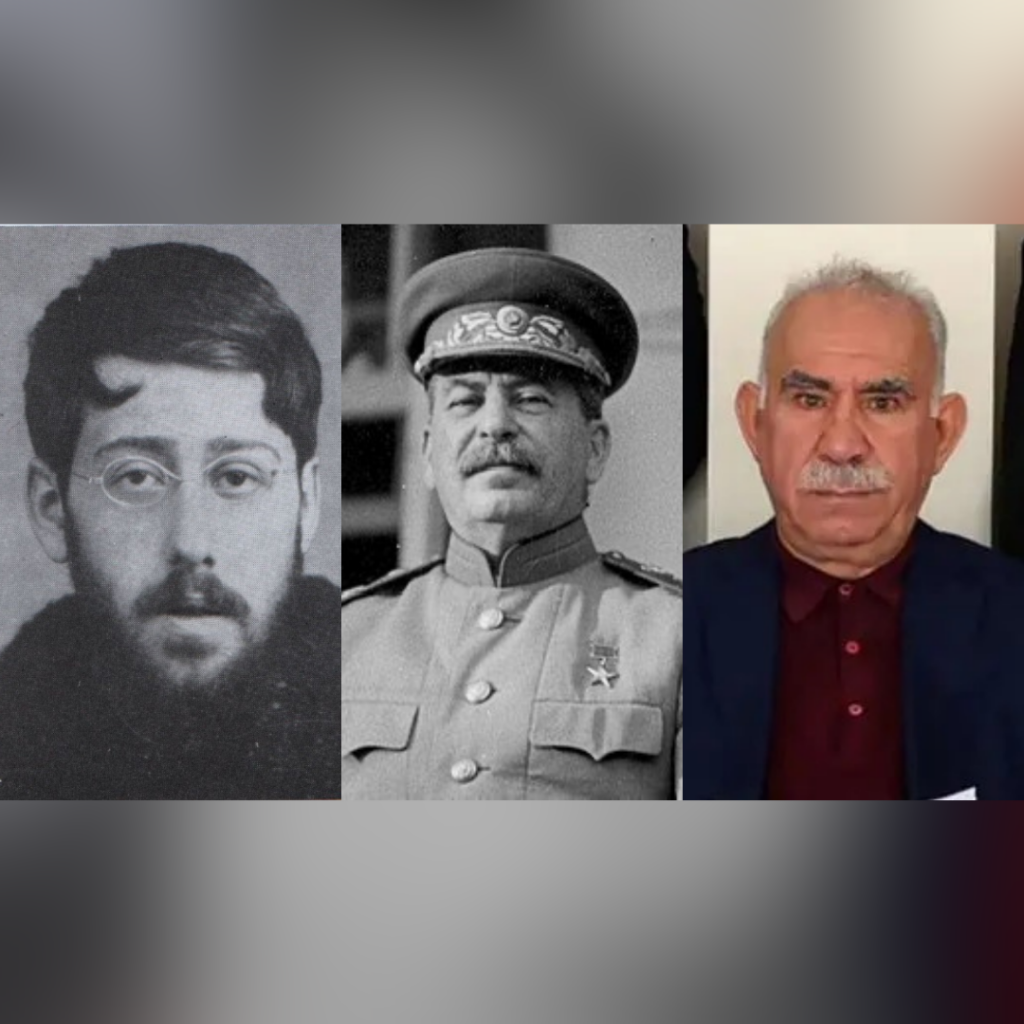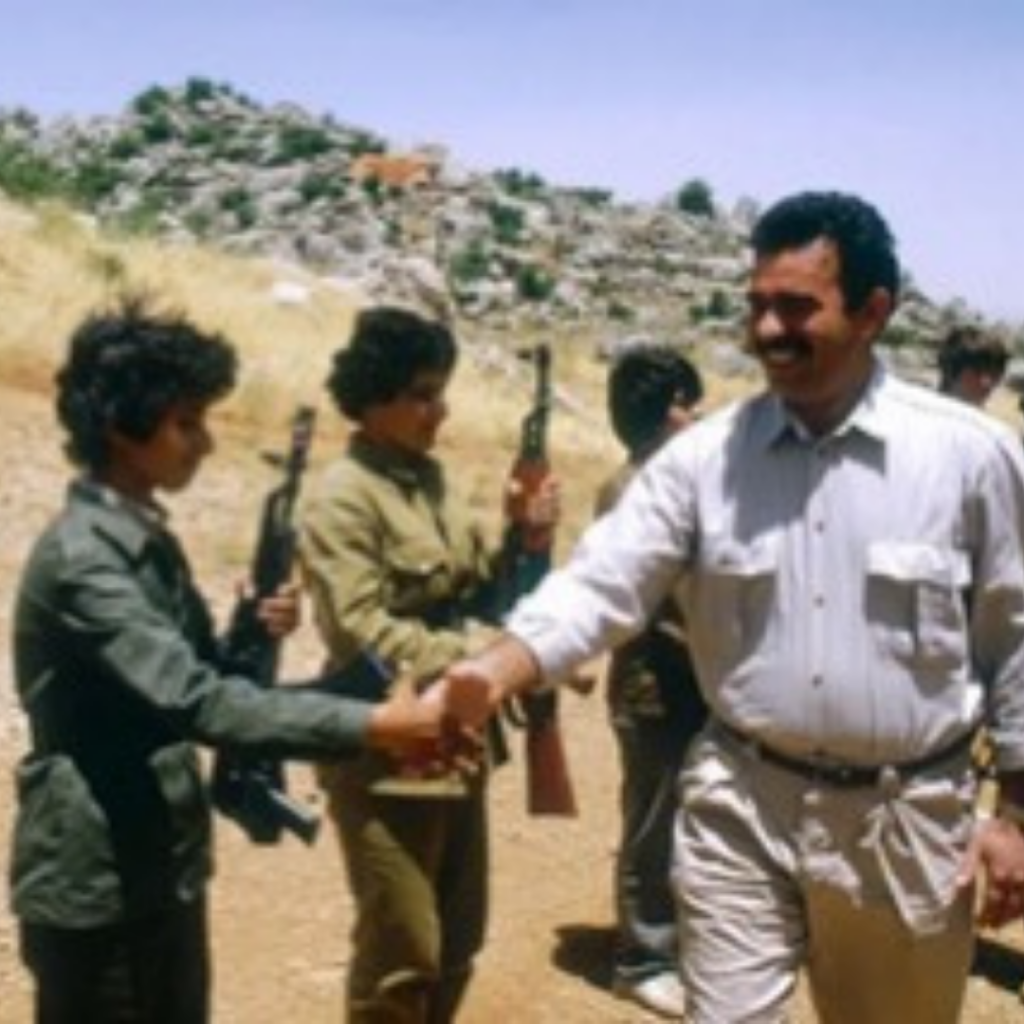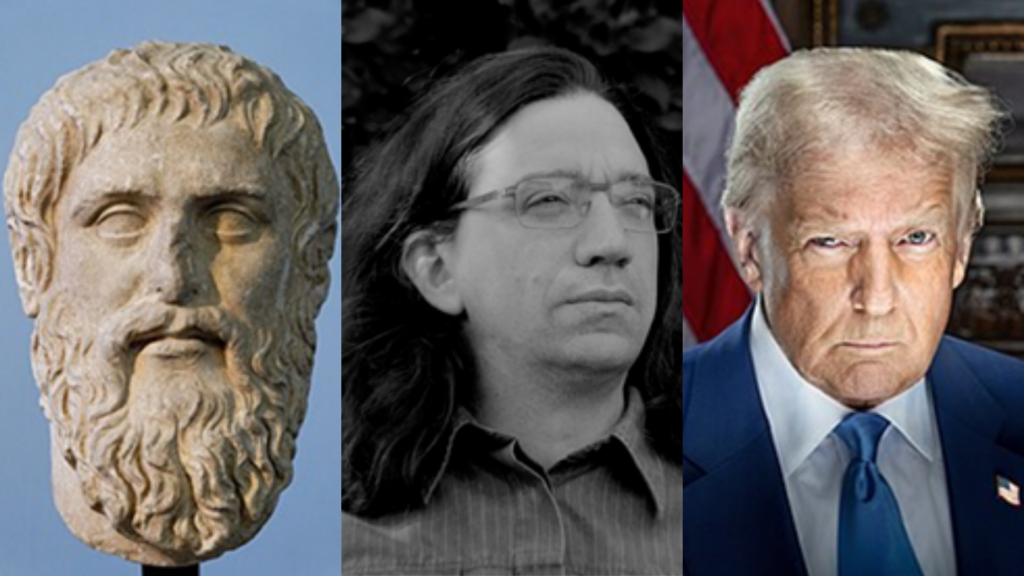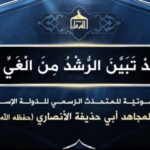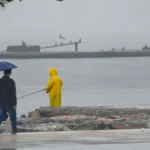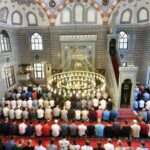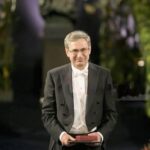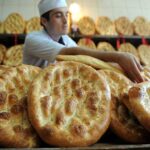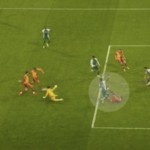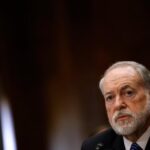Halil Berktay
The Turkish original of this article was published as Yerli muhalefet liderliğinden, Bakur-Rojava başbakanlığına (1) on 13th December 2015.
[December 12-13, 2015] Consider the questions highlighted above. I have been repeatedly trying to answer them in the aftermath of the June 7 elections, and especially after the PKK launched its “new people’s revolutionary war” in mid-July. These initial attempts were part of numerous Serbestiyet articles as well as various television programs (see footnote 1). Over the past two weeks, Etyen Mahçupyan has summarized the current situation yet again (see footnote 2). Thus the full picture is now available, with everything looking crystal clear. Most recently, Elif Çakır’s questions on the Thursday, 10th October Söz Bitmeden [Before Words Fail Us] talk-show on Ülke TV pushed me once more to put everything in proper logical and chronological order. Here, I want to set everything out one last time, and also use some extensive quotations to bring in what I had written in the past on this subject.
(1) A fundamental constraint: inability to do without violence. In all the articles and television programs listed in my footnotes, I invariably began by noting that behind the PKK’s position is a deep-lying substratum, a bedrock, a tectonic plate on which all current and tactical changes are based. Simply put, because the PKK has been resorting to violence for almost forty years, it has developed a certain addiction to guns and violence. The PKK was born in the throes of violence, as an organization of and for violence. It was not the military wing of any civilian (albeit illegal) political party. On the contrary, despite the word “party” in its name, it always had an armed, military outlook (acquiring civilian political extensions only over time). Initially, over 1977-1985 it obtained some elbow room for itself in the east and southeast through the violence it brought to bear on other leftist Kurdish movements and organizations. Then, through the guerrilla warfare methods and tactics it adopted against the state, it grew stronger, extended its mass base, and established a first degree of territorial control. In the 1990s the government responded with the Çiller-Güreş “dirty war”. In 1999 Öcalan was captured and brought to Turkey. He was put on trial, condemned to life imprisonment, and put behind bars on İmralı island. Since then, periods of hot conflict have kept alternating with de facto cease-fires.
One way or the other, the upshot is that the top PKK leadership up on Kandil consists of people who haven’t come down from the mountains for thirty-plus years, who know nothing of peace or normal politics, whose entire life and mode of existence boils down to nothing but violence, and who have grown old and mentally rigid through all these years of war. To recall an analogy I once used, these “commanders” have come to be surrounded by myths and legends comparable to the ancient Greek gods and goddesses on Mount Olympos, so that their power (too) depends not only on arms but also on the distance separating them from ordinary mortals (see footnote 3). There is a certain mystery of kingship involved. Following his 1453 capture of Constantinople, Mehmed II the Conqueror changed court protocol by ordaining, for example, that the sultan should henceforth absent himself from meetings of the Imperial Council (but listen on from behind a latticed, curtained window). This nurtured a quasi-divine mystique about an omnipotent and omniscient emperor who cannot be seen yet sees everything, nor can be heard yet hears everything. Kandil’s rulers have been cultivating a similar aura around themselves. And neither can they do without war and violence. For them, war is no longer the means to achieve certain political ends; instead it has become an end in itself. The Kurds are no longer the fundamental masses, the people whose interests are the starting point for all else, and which must be safeguarded at all times. Instead they have been reduced to nothing more than a power base, a nondescript horde of instrumentalized subjects.
It has become impossible for Cemil Bayık, Duran Kalkan, Murat Karayılan and their likes to even contemplate laying down their arms; descending from the mountains to mix and mingle with the ordinary Kurdish people; and embarking upon peaceful political competition with the AKP or other Kurdish political parties on equal terms — i.e. without their armed retinues to intimidate, subjugate, and extract tribute from all others. This is the prime reason why they have come to fear peace; why they have grown cold and indifferent to all cease-fire and negotiation attempts; why, instead, they have constantly kept looking for ways to raise the bar and pretexts for moving the goalposts.
(2) This has gone hand in hand with turning their backs on Turkey’s overall democratization process. Crucially, this has been due to the PKK’s increasing fear of the AKP. It is widely believed that the PKK’s and the HDP’s hostility to Erdoğan and the AKP started with Demirtaş’s “We are not going to allow you to become president” statement on the way to the June 7 elections. No, that was just the peak of and the clearest expression in a whole process, whereas if we stop now to look back, we can actually see that the outlook in question started to make itself felt in the immediate aftermath of the 2007 presidential and then general elections. What happened in 2007? On the one hand, the AKP strengthened its position by increasing its votes to almost 47 percent; simultaneously, it put Abdullah Gül in Çankaya, thereby surviving the storms of that evil year (in which Hrant Dink’s murder was just one of many conspiracies), and declared to all that henceforth it was not going to be toppled easily. On the other hand, the Kurdish movement also won 26 independent seats in parliament, so that for the first time, these two forces came to position themselves at the two ends of the Kurdish problem. Rather surprisingly, this was not really to the PKK’s liking; on the contrary, Öcalan and Kandil quickly did a sharp turn to proclaim that “this issue cannot be resolved with the AKP; it can only be resolved with the state” – by which they meant the military-bureaucratic establishment which all along had been the Kurds’ harshest enemy.
At that time, both the Gezi demonstrations of Summer 2013 and the same year’s December 17-25 “corruption operations” were still in the distant future, so that the left-liberal intellectuals who were lending their support to the AKP for the sake of democratization had not yet fallen out among themselves, with some moving out to become staunch enemies of the AKP. Hence, many including some of the left’s important opinion leaders were astounded by this about-turn of the PKK, regarding it as a wholly unrealistic, irrational oddity (and they were right, too, but in time it would be they who changed rather than the PKK). In the face of Kandil’s usual thick-skinned nonchalance, such critiques peaked during the 2010 constitutional referendum. While the AKP appeared to have deliberately scheduled the voting for 12th September 2010, i.e. the thirtieth anniversary of the 12th September 1980 military takeover that had then saddled Turkey with the dead burden of the 1982 Constitution, the PKK and the BDP (its legal extension at the time) adopted a slippery and opportunistic attitude that was then, as now, very difficult to understand. They were not half as brave as the tiny DSİP which, under its late chairman Doğan Tarkan, launched the “not enough but yes” (Yetmez ama evet) campaign to try and shake a fossilized left out of its eternal nay-saying habit. Instead, the PKK and the BDP said yes to only some of the proposed amendments while rejecting others for no good reason at all — basically so as not to appear to be aligning themselves with the AKP.
Going through my 2010-2011 Okuma Notları [Reading Notes] columns for the daily Taraf as it used to be, before it was completely taken over by the Gülenist Congregation, I am amazed to see how often I felt compelled to write about this issue. On one such occasion, for example, I noted that “in the southeast, which the PKK regards as its own backyard and exclusive hunting ground, the AKP, too, is strongly present. In fact, it is possible to say that apart from the PKK and its affiliates, there is only the AKP. Thus, for the PKK, the AKP means not one but two things. It is the government which it has to negotiate and to reach a compromise with. It is also the PKK’s most serious, indeed only serious political rival on a local scale. Under these circumstances, the PKK prefers to conduct its struggle against the AKP as a political party through its struggle against the AKP as the government. It prefers to governmentalize and statify the AKP, to reduce it to state and government, in order to struggle against it on those terms.” (“PKK’nın AKP sorunu” [The PKK’s problem with the AKP], 31st March 2011). I believe that this assessment grasps a fundamental continuity in PKK policy to this day.
(3) Also along the same lines, the PKK has never really relinquished its original aim of separating from Turkey and establishing its own state. It was around the same time as all the above developments, that is to say in going from the 12th September 2010 referendum to the 12th June 2011 elections, that indications in this last regard, too, began to increase. Their public position was that henceforth, they would only be looking for more rights and liberties for the Kurds within Turkey. But they were also bent on continuing the armed struggle; didn’t this constitute an inconsistency? A significant indicator in this regard was what happened to Osman Baydemir (Diyarbakır mayor at the time) when he came out to say that “the armed struggle had run its course and was historically obsolete.” He received an extremely strong scolding from Öcalan at İmralı: Know your place; who do you think you are? At the time, I inferred not only that “the PKK, including both Kandil and İmralı, just cannot give up its paradigm of violence,” but also that it was maintaining its separatist objectives under different guises. For “being pro-Turkey, and attaching primacy to democratic rights and reforms within Turkey, can never be a ‘politically adequate’ objective for supporting and sustaining the armed struggle,” I argued (in a 26th March 2011 article titled “Hegemonya ve ‘psikolojik savaş’” [Hegemony and ‘psychological warfare’]). In the same column, I further noted that “the final objective” had been replaced by “the movement above all”: ‘”It seems that for the PKK, ‘the movement,’ not as an ongoing struggle that moves forward from one reform to another, but as the organization’s self-preservation and sustainability — in the face of the possibility (or threat) of peace — has become everything. Indeed this is just what is meant by‘fear of liquidation.’”
There is yet another aspect of interest that connects yesterday with today, and it has to do with the search for local hegemony through force of arms. These days it is called “self-government”; in 2011 it was called “democratic autonomy.” What a coincidence it is, therefore, that some left-liberal intellectuals from among an entire group that over the last two years has come to pin all its hopes on the HDP, and which has almost entirely stopped criticizing the PKK that is behind the HDP, should have said some rather harsh things against this “democratic autonomy” venture back in 2011. Oya Baydar, for example, took note of the PKK’s despotism. Murat Belge for his part wrote two articles expressing his worries about what the PKK might do to its own people if it ever came to power (for which he was attacked by Veysi Sarısözen). I for my part appear to have construed “democratic autonomy” as a euphemism for a separation that is not to be called a separation, and a state that is not to be called a state. This is what I said in that same 26th March 2011 article: The entire outlook and policies of the PKK “revolve around the objective of becoming or remaining the one and only power in the Kurdish regions that it sees as its own territory. That is why Öcalan insists against all odds on calling all other Kurdish intellectuals to join the DTK, which the PKK is preparing to institute as its organ of local power. In parallel, the DTK’s (and not the BDP’s) ‘democratic autonomy’ project has the aim of establishing absolute control over who will represent the Kurdish territories, which as many observers have noticed can hardly be called democratic (and which has been qualified as despotic by Oya Baydar).
“Are these moves undertaken directly against peace, so that the government is forced to say that this is too much, leading back into a state of war which of course is best suited to the PKK’s elimination of the middle ground and maintaining its local hegemony? Possibly there is also that aspect. But it seems to me that the more important objective is to establish an uncontested political monopoly in the southeast after the peace (though with this approach, it is difficult to foresee just how, if ever, peace might be achieved). A corollary is that the Kurdish territories will be practically separate. The level of hegemony the PKK is seeking as a guarantee of its organizational survival (replete with its own flag and its own ‘self-defense) implies a state of separation without ever mentioning the word.
“It also reveals a great deal about the internal politics of their prospective, presumed state — just as Murat Belge has written in those two articles that so infuriated Veysi Sarısözen.”
The PKK’s current treatment of the Kurdish people in the areas of ditch-and barricade “self-government” can only help prove how justified Oya Baydar and Murat Belge were in all their anxieties four years ago.
(4) And indeed, it was at the very next step that the PKK took “the last exit before the bridge” in its first flight from peace back in 2011. Sadly, I would also appear to have foreseen and explicitly written about this before the June 2011 elections. At the time there was talk of a “new analysis” by the PKK; I read this (correctly, it turns out) as heading back to war. For example, I wrote the following: “It is my feeling that the PKK cannot digest the notion of peace, it cannot envisage, it cannot imagine itself in a ‘state of peace.’ Rather, it is trying to find a way out of this atmosphere of increasing expectations for a permanent peace. Just like a bride or groom who finds himself or herself in the middle of preparations for a wedding that s/he doesn’t really want, and who therefore starts looking for an early escape route so as not to have to say no before the municipal registrar and all the witnesses, the PKK is looking not to miss any ‘last exit before the bridge’ opportunities. It is at this point, I believe, that together with the unending provocations of the deep state in its quest for maintaining the military’s tutelage, the ‘new analysis’ also enters center-stage as the PKK-BDP leadership prepares, perhaps, to resort to such pretexts for explaining a major turn-around to its supporters.” (“Kaybolduğum haftalar” [The weeks when I disappeared from view], 19th May 2011)
Such words were very much at odds with the “BDP bloc” atmosphere prevailing at the time. Let me remind everybody: Just like the all the love for “Selocan” and the HDP that went rampant during the 7th June 2015 elections, a love for the BDP was making the rounds during the 12th June 2011 elections. A “labor, democracy and freedom bloc” had been formed around the BDP, and the entire left was being called on to vote for this bloc — with however no mention at all of “peace,” which should have been the most important slogan and keyword of all. Even Gürbüz Özaltınlı, with whom I find myself on the same wave length at least 90 percent of the time, had turned critical on that occasion. In his “Berktay’ın metaforu” [Berktay’s metaphor] note of 24th May 2011 (in the old Taraf), he wrote that he did not like my comparison with an about-to-be-aborted wedding. I was turning a blind eye to the PKK’s internal differences as well as Öcalan’s “clear statements,” ending up by overlooking a reality of “two different PKKs,” he argued. He went on to say that he didn’t understand why I was doing this: either I had lost all hope of peace, or I was betting on a stronger AKP to achieve the peace. Five days later, I responded to Özaltınlı, as well as some other objections, with two articles published on the same page, one below the other (“Gerillaya oy vermeyeceğim” [I am not going to vote for the guerrillas] and “Solun ‘haklı şiddet’i reddedemeyişi” [The inability of the Left to reject ‘just violence’], both 29th May 2011). I pointed out that the PKK was maintaining and even escalating a language of violence. I expressed my amazement that those calling for the “bloc” to be supported had not even thought of stipulating “peaceful political activity” as a simple, basic, logical condition for that support. This is how I concluded: “In spite of all the calls by people I really care about, and at the cost of standing all alone, I will not vote for the PKK-BDP front called the ‘labor, democracy and freedom bloc.’ I hold this to be a wholly mistaken analysis and a wholly mistaken step that people are drifting to out of empty dreams and unquestioned habits of mind.”
I am so glad I said all this. We all remember (or should remember) what happened next. Formed around the BDP, this “Labor, Democracy and Freedom Bloc,” so-called, succeeded in putting 36 independent candidates into parliament. Then on 21st June, the High Electoral Board annulled Hatip Dicle’s election on the grounds of a 20 months in prison sentence that he had received for PKK propaganda. In reaction, the BDP Independents promptly decided to boycott parliament (23rd June). In turn, this provided the PKK with the pretext it was looking for in order to demonstrate the primacy and supremacy of the armed struggle. Out of the de facto cease-fire prevailing at the time, on 14th July 2011 there came the PKK’s Silvan ambush. A General Staff press release announced that 13 soldiers had been killed and 7 others wounded “in the fighting and due to the forest fire started by the grenades thrown by the terrorists.” The PKK, as it usually does, first resorted to lies and denial, rather stupidly asserting that Turkish army helicopters had hit their own personnel with gas and fire bombs. Only later did it claim the “victory.” The cease-fire ended and the war started again.
Everything else aside, don’t you find the resemblance between what happened in 2010-2011 and then again in 2014-2015 rather striking? Aren’t the PKK+BDP’s methods and tactics of four years ago and the PKK+HDP’s methods and tactics today almost exactly the same? Likewise, aren’t the hopes then pinned on the “BDP bloc” (without any “adherence to peaceful politics” condition), and the hopes pinned on Demirtaş and the HDP (purely for the sake of hostility to the AKP, and without a thought for the PKK lurking backstage) also virtually the same?
What was it that I was talking about — empty dreams and unquestioned habits of mind? But really, in the real world should there be no limit to naivety? I am not going to mince my words. Just look at what the PKK has now done to the southeast. OK, the first time along let us say that (almost) everyone was taken in. But how can the same idiocy be committed a second time? I find this rather hard to believe. I shall continue from here on.
NOTES
(1) In the order they were written, see: Diyarbakır önlenebilmeliydi [It should have been possible to prevent the Diyarbakır bombing], 6th June; Suruç’un ardından (2) PKK’nın yeni karşı-devrimci iç savaşı [After Suruç (2) the PKK’s new counter-revolutionary people’s war], 24th July; Suruç’un ardından (3) HDP ile kısa ve beyhude bir tartışma [After Suruç (3) A brief and futile questioning of the HDP], 25th-26th July; En basit soru: PKK’nın istediği tam nedir? [The simplest question of all: just what is it that the PKK wants?], 6th August; Neleri geri almaya hazırım [All that I would take back, if only], 7th August; Dengir Mir Fırat’ın mektubu [Dengir Mir Fırat’s letter], 17th August; Kaçınılmaz bir çatlağın aleniyet kazanması [An inevitable crack emerges into daylight], 26th-27th August; Bu “özerklik” o özerklik; bu “özyönetim” o özyönetim mi? [Is this “autonomy” the same as that autonomy; is this “self-government” the same as that self-government?] 30th August; Nefes nefese [Breathless], 30th September; Bir felâkete sürükleniyoruz [We are drifting to disaster], 10th October; Ahlâksız Teklif [Indecent Proposal], 11th October; Demokrasi ve meşruiyet için [For democracy and legtimacy], 17th-21st October; Bir metin şerhi denemesi (Demirtaş'ı okuma kılavuzu) [An exercise in exegesis, or a guide to reading Demirtaş], 9th December 2015.
(2) See: PKK ne istiyor? (24th November) and in English, What does the PKK want? (28th December); PKK ne yapıyor? (26th December) and in English, What is the PKK doing? (29th December); Kürtler ne yapacak? (9th December) and in English, What will the Kurds do? (8th December 2015).
(3) For this metaphor, see: En basit soru: PKK’nın istediği tam nedir? [The simplest question of all: just what is it that the PKK wants?], 6th August 2015.
Yazıyı beğendiysen, patronumuz olur musun?
Evet, çok ciddi bir teklif bu. Patronumuz yok. Sahibimiz kar amacı gütmeyen bir dernek. Bizi okuyorsan, memnunsan ve devam etmesini istiyorsan, artık boş olan patron koltuğuna geçmen lazım.
Serbestiyet; Türkiye'nin gri alanı. Siyah ve beyazlar içinde bu gri alanı korumalıyız. Herkese bir gün gri alanlar lazım olur.




